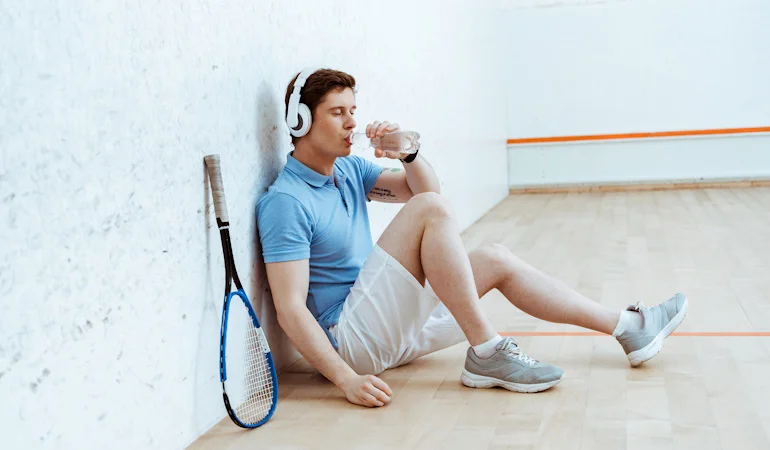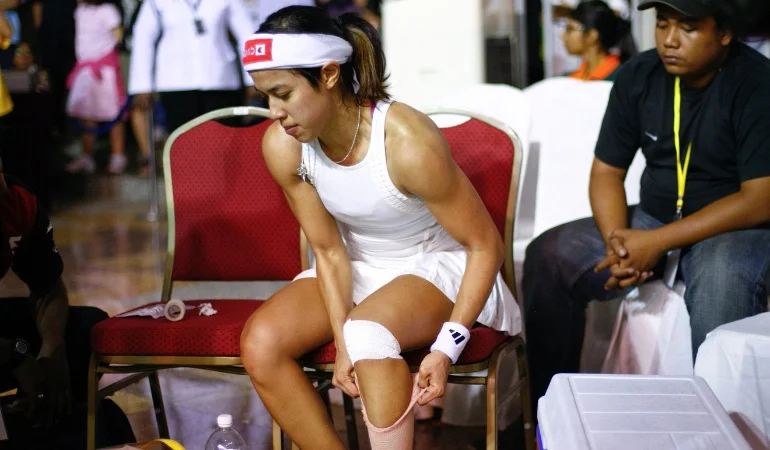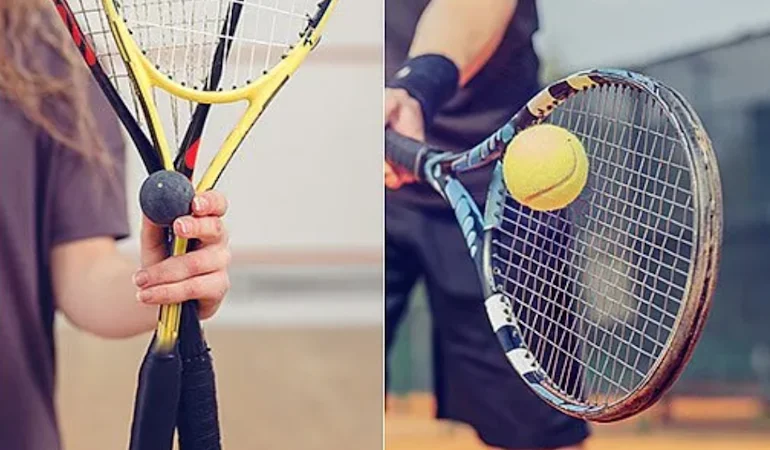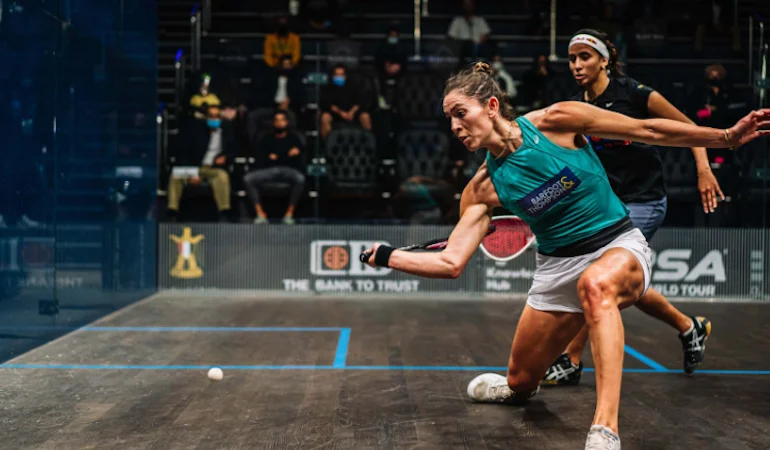Optimal Hydration Strategies For Squash Players

In this guide, we will discuss the importance of hydration for squash players and provide strategies to help you maintain an optimal level of hydration during your game. We will also cover common signs of dehydration and how to prevent it from affecting your performance.
Whether you are a beginner or an experienced player, understanding how to hydrate properly can make a significant difference in your overall squash game. So let's dive into the world of hydration for squash players!
Why Hydration is Important for Squash Players
Hydration plays a crucial role in the performance of a squash player. The intense and fast-paced nature of the sport makes it easy for players to become dehydrated quickly. Every time a player moves, they lose water through sweat. If this fluid is not replenished, it can lead to dehydration.
Dehydration can cause a decrease in muscle strength, endurance, and coordination, all essential components for a successful game on the squash court. It can also affect mental concentration, which is essential for making quick decisions during gameplay.
Apart from affecting physical and mental abilities, dehydration can also increase the risk of injury. When dehydrated, muscles are more prone to cramping and strains due to the lack of fluid and electrolyte balance in the body. Therefore, proper hydration is crucial for a safe and successful game.
Hydration Strategies for Squash Players
There are several strategies that squash players can implement to maintain optimal hydration levels during a match or training session. Here are some tips to help you stay hydrated:
1. Start Hydrating Before Your Game
Beginning hydration before your squash match is essential for optimal performance. Aim to drink fluids throughout the day leading up to your game, ensuring your body is well-prepared.
Consuming water, electrolyte drinks, or hydrating foods like fruits can significantly enhance your hydration levels. Ideally, start hydrating at least two hours before the match to allow your body time to absorb the fluids.
This proactive approach not only helps to prevent dehydration but also sets the foundation for sustained energy and focus as you step onto the court, allowing you to perform at your best.
2. Keep Sipping Throughout
During gameplay, it's essential to keep sipping on fluids regularly. Taking small sips every few minutes can help maintain hydration levels and prevent dehydration. Remember, waiting until you feel thirsty is not enough as thirst is a sign of already being dehydrated.
It's recommended to drink around 16-24 ounces of fluid for every hour of physical activity. However, this may vary depending on individual factors such as sweat rate and body size. It's best to experiment during training sessions to determine your specific fluid needs for optimal performance.
Plus, sipping on fluids can also help to keep your mouth and throat moist, reducing the risk of dryness and irritation, which can affect your focus and performance on the court.
3. Replace Electrolytes
As mentioned earlier, when we sweat, we lose not only water but also vital electrolytes like sodium, potassium, and magnesium. These electrolytes are essential for muscle function, and their depletion can lead to fatigue and cramping.
Therefore, it's crucial to replace these electrolytes during gameplay by consuming sports drinks or snacks that contain them. You can also make your own electrolyte drink with water, honey, and a pinch of salt.
However, be cautious not to overconsume sports drinks as they generally contain high levels of sugar that can cause gastrointestinal distress or a sugar crash later on.
4. Choose Your Beverages Wisely
Not all beverages are created equal when it comes to hydration. While water is the most obvious choice for hydrating, it's not the only option. Sports drinks contain electrolytes and carbohydrates, making them a suitable choice for longer and more intense games.
Coconut water is also a popular hydrating option as it contains natural electrolytes and is low in sugar. However, be cautious of flavored or sweetened coconut water as they may have added sugars that can affect hydration levels.
On the other hand, beverages like coffee, tea, and alcohol can have a diuretic effect, causing increased urination and fluid loss. Therefore, it's best to avoid these before or during a game.
5. Monitor Your Urine Color
One simple way to track your hydration levels is by monitoring the color of your urine. Dark and concentrated urine is a sign of dehydration, while pale and clear urine indicates adequate hydration.
Keep in mind that certain vitamins or medications can affect the color of urine, so it's essential to consider these factors when monitoring. It's also crucial to note that if you're already dehydrated, simply drinking fluids may not immediately change the color of your urine.
6. Always Have a Water Bottle on Hand
Having a water bottle readily available during training and matches is essential for maintaining hydration. It serves as a constant reminder to drink fluids throughout your play, making it easier to sip regularly rather than waiting until you're thirsty.
Opt for a reusable bottle that keeps your water cool, as the refreshing temperature can encourage you to hydrate more. Keep your bottle filled before you step onto the court, ensuring you have immediate access to fluids to support optimal performance and recovery.
7. Plan for Post-Game Hydration
Hydrating after a game is just as crucial as hydrating before and during. Replenishing fluids lost during gameplay will help speed up recovery and prevent dehydration-related symptoms like headaches and fatigue.
Continue drinking fluids after the game, including electrolyte drinks or snacks if necessary. It's also essential to consume hydrating foods like fruits and vegetables rich in water content.
Proper hydration should be an ongoing process, not just during gameplay. Ensuring you stay hydrated throughout the day, leading up to a match, and after will support your body's functions and help you perform at your best on the court. Remember, prevention is always better than trying to combat dehydration during a game. So keep these strategies in mind and make hydration a priority for safe and successful squash gameplay.
Does Hydration Impact Performance?
The short answer is yes - hydration significantly impacts performance. Dehydration can lead to a decrease in strength, power, and endurance, as well as impairing cognitive function and decision-making abilities.
In fact, even mild dehydration (losing just 2% of your body weight in fluids) can negatively affect athletic performance. This highlights the importance of proper hydration before, during, and after a squash match.
On the other hand, adequate hydration has been shown to improve physical and mental performance. Studies have found that athletes who maintain their fluid levels perform better in activities such as running, cycling, and team sports compared to dehydrated athletes.
Therefore, it's essential to prioritize hydration, not just for optimal performance on the court but also for your overall health and well-being. Remember, proper hydration is not just about drinking water - electrolytes and other fluids are also crucial for maintaining a balance in our bodies.
Mistakes to Avoid When Hydrating for Squash
While staying hydrated is essential, there are also some common mistakes to avoid when hydrating for squash. Here are a few things to keep in mind:
- Don't rely solely on thirst: Thirst is not always an accurate indicator of hydration levels. By the time you feel thirsty, you may already be dehydrated. It's best to have a water bottle on hand and sip regularly throughout your gameplay.
- Avoid overconsumption of sports drinks: While sports drinks can be helpful for replenishing electrolytes, they also contain high levels of sugar. Too much sugar can cause gastrointestinal issues and possibly negatively affect performance. Stick to water as your main source of hydration and use sports drinks as needed.
- Don't just hydrate during gameplay: Hydration should be an ongoing process, not just something you do during a game. Make sure to drink fluids throughout the day leading up to a match and after to replenish lost fluids and support recovery.
- Don't ignore signs of dehydration: If you're experiencing symptoms like dizziness, fatigue, or dark urine, it's crucial to address them immediately. Take a break and hydrate with water or electrolyte drinks.
By avoiding these common mistakes and making hydration a priority in your squash training and gameplay, you can improve your overall performance and keep yourself safe from potential dehydration-related issues.
FAQs
Can I drink too much water while playing squash?
While proper hydration is important, it's also possible to overhydrate. This can lead to a condition called hyponatremia, where your blood sodium levels become dangerously low. To avoid this, stick to drinking small sips of fluids throughout your gameplay rather than chugging large amounts all at once.
How do sports drinks help with hydration during squash?
Sports drinks contain electrolytes like sodium and potassium that are lost through sweat during intense physical activity. These electrolytes help replenish what the body has lost and support proper hydration levels.
Can I rely on coconut water for hydration during a squash match?
Coconut water can be a good option for hydration as it contains electrolytes and natural sugars. However, be mindful of the sugar content and try to stick to plain water for most of your hydration needs.
Conclusion
In conclusion, staying properly hydrated is crucial for safe and successful squash gameplay. Remember to have a water bottle on hand, plan for post-game hydration, and avoid common mistakes that could impact your hydration levels.
So next time you step onto the court, make sure to keep these strategies in mind and stay hydrated for a winning game!

Frequently Asked Questions
Partners & Sponsors





